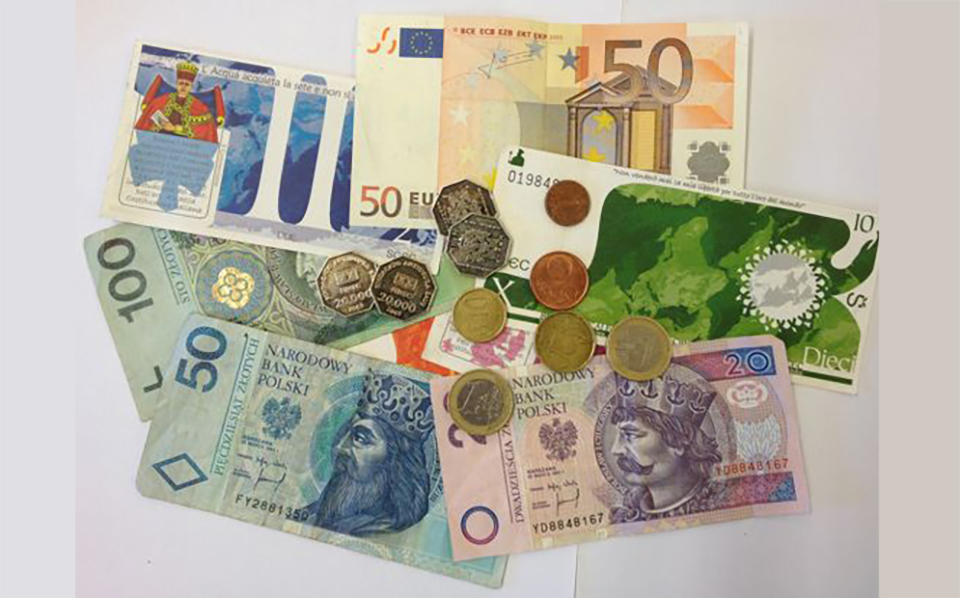“Give me control of a nation’s money and I care not who makes the laws”
– Mayer Amschel Rothschild
He who creates the money is the sovereign. This was true throughout history, from the times when humans first started mining for gold on the African continent to the times of kings and warlords. The coinage of money – and in those times it was mainly precious metals – was a royal privilege … until we got industry and banking.
The Royals lost their best asset, the power to create money, to the banks. Even in the United States, where the power to create money was initially given to Congress, the bankers succeeded, with the 1913 Federal Reserve Act, to make the banks the ultimate arbiter of money creation … and things have gone downhill from there on out.
Money wars
Wars are fought over money. Hitler, the “crazed dictator”, as it is fashionable to call him now, was actually trying to take the money power back from the international bankers. He did underestimate the challenge of a war declared by those international bankers on the German nation.
In more recent times, we saw several countries designated as an “axis of evil”, to be destroyed, targeted for “regime change” by the policeman of the world, the United States of America. The legitimately elected leaders of those countries, characterized as “evil dictators” were targeted one by one. Some of them fell, their countries a bloody mess now, some of them are still standing, but constantly under siege. Oh yes, the salient feature that distinguished those countries was that they were financially independent, that they did not have a Rothschild controlled central bank and one of them, Gaddhafi of Libya, had the gall of proposing to establish a gold-backed currency for Africa to compete with the almighty dollar…
Bankers and fortunes
So by reason of becoming the money creators instead of simply the money keepers, the bankers have assumed the role that earlier was the sovereign king’s. They call the shots, they say when a war is to take place and against whom, and it goes without saying that they profit by financing, by lending money, to both sides of the conflict.
Who creates the money, in other words, is the real sovereign.
Behind the banks of course are the quiet “investors”, family fortunes built on the sweat of labor – not their own to be sure – and on a shameless use of the power money brings with it, to corrupt the political process.
The fourth industrial revolution
The situation is to be further consolidated now with what has become known as “the great re-set”, part of the fourth industrial revolution promoted by Klaus Schwab together with a selection of the rich and powerful, united in his World Economic Forum.
As industry is becoming increasingly automated, those who were before needed as worker/slaves suddenly no longer have a place. They are threatening to become a dead weight, a burden to be carried on the back of the new computer-controlled technocratic society. Humans are no longer needed to work, so what to do with them?
Not to worry, the problem will be solved. The magic is to be worked by a universal basic income (UBI) and by “impact investment” and the newly emerging human capital bond market. We’re turning those superfluous humans into capital! The human resource pool of the world…
Sounds good, a universal basic income, doesn’t it? I have myself toyed with the idea as it could, if done well, allow people to develop the arts and real industry without having to constantly think about where to get the money to survive for another week or maybe a month.
But no, the technocrats have a better idea, they think. It is to be basic income linked to mechanisms that are designed to “make people be good”. The money received as UBI won’t just be money to spend as you think best. It is projected to be a centrally controlled digital currency run on blockchain technology, where every cent is kept track of from issue to eventual retirement and where your account can be frozen at any time, or certain kinds of spending can be inhibited … all in the name of making you be good.
This is where “impact investment” comes in. It is a mechanism the rich can play with to make sure the poor do the right thing. It starts in the schools and continues throughout life … “life long learning” is the term.
“Don’t be a bully”, “have you taken the vaccine yet”, “why were you not out jogging this week” or “that drug you were taking there is unapproved, did you know”. The possibilities for control and therefore for investment in and gambling with those “social impact bonds” are endless. Let one part of humanity control the rest, while the bigwigs can get on with the real work at hand. Sick!
Money’s basic flaw
So what can we do to prevent that from becoming our reality? Resistance is of course one option, but if you resist, you aren’t resolving the problem. It just gets ever more solid.
Since we are talking about money and since the ones that control the issue of money also call the shots, can’t we just issue our own money? That seems like a very complicated thing at first and although many have tried, no one has succeeded in more than a very limited sense.
Let’s look at money itself. Money is said to be a means of exchange, a measure of value of what is being exchanged, and at the same time a store of value. But logically, it can’t be both. Something that is of value in and of itself and the value of which will of course change with market realities, can never be a proper measure for the value of other things. That double function opens up money to all kinds of corruption, just for the sake of accumulating more of the coveted thing, and it therefore completely ruins the measuring function. This is the basic flaw in our conception of money, the thing that gives such tremendous power to the ones who have accumulated much of it.
Value and money
We could however de-couple money from actual value. If you want to store value, buy some real property or invest in gold or whatever else you fancy. But let’s use money strictly as a recording device, without attaching any value to it.
Money, in this hypothesis, gets created every time an economic interaction takes place, and it gets retired (destroyed) when the transaction is finally reciprocated. So money in this new world is not primary, it is not a pre-condition for economic activity. It is merely a record of the value of transactions that have already taken place.
This is a big conceptual change, but one that is necessary if we are to escape the claws of a society where money commands and completely determines our every action.
Marc Gauvin and a group of systems researchers have done much work on this and they have recently come up with a paper that goes into some depth describing such a system. They also have a website (Money Systems Transparency Alliance) where their research into the mis-definition of money is documented.
You might say all well and good in theory, but how are we going to apply this in practice.
In reality, all that would be needed is a change in attitude. The crux of the idea is to “give first, get back later”. Some people have a name for this: the gift economy. So what we really have here is an economy of giving, with a recording device called money. It is a shift in emphasis, one that will deprive money of the power to determine our every step and action.
The Austrian experiment – Wörgl
Historically, a somewhat similar proposal was made by a German/Argentinian businessman called Silvio Gesell. Although Gesell did not go as far as to say money must not have its own value, he did propose to charge a fee on money, a negative interest to make money lose some of its value over time.
That practice, Gesell said, would make money circulate, it would prevent pools of money from accumulating, a fact that was brilliantly proven by the experiment of Wörgl.
It happened in the 1930s, in a time of severe economic depression. The mayor of Wörgl, a small town on the Austrian/German border, issued a number of chits denominated in Austrian Schilling that were used to pay workers and to finance communal projects. There was a small monthly charge on those chits – a stamp had to be bought and affixed on those papers for them to keep their validity. Since no one wanted to be the one to buy the stamp, those chits were spent wherever possible, and in this way they stimulated the economy of the area.
The experiment was so successful that other cities in Austria made moves to copy the successful action, only to be told by the Central Bank in Vienna, that such local money issues were henceforth strictly “verboten”. The experiment was successful, but it could not be more widely applied because the bankers at the time acted to protect their money issuing monopoly.
Changing our concept of money
So if we want to change the way money is used, the question becomes: how do we get around the inevitable resistance of those with the money (and their banks who have the issuing power) how do we get them to give up the kind of control that having and issuing money affords them.
Marc Gauvin and his colleagues are going for legal argumentation. Money cannot validly be part of contracts as long as it does not correctly express (measure) the value of transactions over time. They explain the flaw of money in logical terms. One of those explanations is titled The Misrepresentation of Money and also interesting is an earlier piece called “The money psyop”. While this approach might eventually work, I am not sure though that we can hold our breath long enough for things to change because reason alone finally prevailed.
Can someone make a cryptocurrency?
There might be something else though we can do to kick-start ‘doing our own money’. Perhaps a crypto currency that does not put the value of money – the value of the currency – first. A crypto currency that limits its ambitions to being a measure of price and a recording device of transactions, rather than a “store of value” or investment, as is the ambition of Bitcoin and pretty much each and every one of the Bitcoin-imitating alt coins.
Recapitulating, what seems to be needed is a change of our perception of money, away from the idea of gold and silver, of the “store of value” kind of money, towards the idea of the purely functional, the promotion of economic activity by merely recording transactions, recording the real value of the product that is changing hands. Money, in other words, not as a pre-condition for the economy but rather as a mere record that gently keeps track of the reality of economic transactions.
Instead of someone in authority, be it a king, a government or a bank, creating or issuing money to allow us to engage in economic activity, we issue that money ourselves, in the course of our own economic activity, money being the trace that economic activity leaves so we can adjust as needed.
That might even solve the question of who controls the world.
Sepp Hasslberger
Terceira island
March 2021
References and resources
https://www.greenmedinfo.com/blog/technocracy-and-great-reset
https://lbry.tv/@RamolaDReports:8/report-237-alison-mcdowell-the-greater:c
https://www.facebook.com/alison.mcdowell.104/videos/1570133739846589
http://www.hanseisenkolb.de/woergl.htm
http://bibocurrency.com/index.php/money-psyop-2

